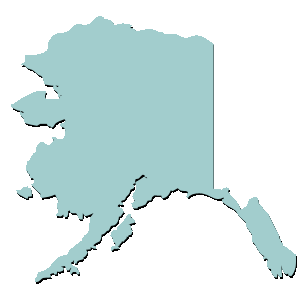Alaska Retirement

Alaska could be a much better place to retire than you think. The nation's largest state has no personal income tax, capital gains tax, estate tax, or state sales tax. Eligible residents of the state can also receive a regular payment for just living in Alaska.
The state of Alaska invests 25% of the money it gets from mineral leases, oil well leases, royalties on oil wells, and other sources in the Alaska Permanent Fund. Money in the fund is invested to earn dividends and the interest on the dividends is paid out to residents of Alaska. The fund was created by an amendment to the state constitution so the legislature cannot use it for other purposes.
Every resident of Alaska is eligible for a Permanent Fund Dividend payment each year.
The amount of the Permanent Fund Dividend can vary based on the market and other factors. The dividend for 2010 was $1,281 per resident of the state.
To be eligible for a Permanent Fund Dividend a person must be a resident of Alaska for a full calendar year and cannot have claimed residency in any other state or country. An eligible person must be planning to stay in Alaska. Some absences from Alaska are allowable and part time residents that claim legal residence and stay in the state for at least 72 days may also be eligible.
Persons will have to fill out the Permanent Fund Dividend Application and file it between January 1 and March 31st to receive this benefit.
Money from this dividend is considered taxable income by the IRS. Therefore, every person who receives the dividend will have to file a 1099 form for this money with their Federal tax return.
» Speak to a Alaska Retirement Advisor for Free
Alaska Income Tax
The state of Alaska has a corporate income tax but no Personal Income Tax. It also has no capital gains or inheritance tax. That means the only taxes on retirement benefits and investments in Alaska are Federal ones. Persons who work in Alaska will pay withholding for unemployment and workers compensation insurance programs.
Alaska Sales Tax
Alaska has no state sales tax because the state gets enough money through royalties on mining and oil drilling to finance its operations. Cities and towns in Alaska can levy sales taxes of their own. The average rate for these taxes is around 3%. The larger cities of Fairbanks and Anchorage do not charge a municipal sales tax. Juneau charges a 3% municipal sales tax.
Alaska Property Tax Rates
Most of Alaska's municipalities charge some level of property tax. The standard rate is a levy of around 10 mills but the property tax can be higher in some cities such as Fairbanks. The Alaska State Assessor offers a free publication listing property and sales tax rates for all of Alaska's communities.
Alaska Cost of Living
Despite the low taxes the cost of living in Alaska can be much higher than in other parts of the country. The distance from other states increases prices on many everyday items and the extreme cold makes for much higher utility and transportation bills. These added costs will often exceed any tax benefits a person gets from living in Alaska.

| Capital: | Juneau |
| Cost of Living Rank: | #49 |
| Sales Tax: | 0.0% |
| Income Tax: | 0.0% |
| State Website: | http://www.alaska.gov |